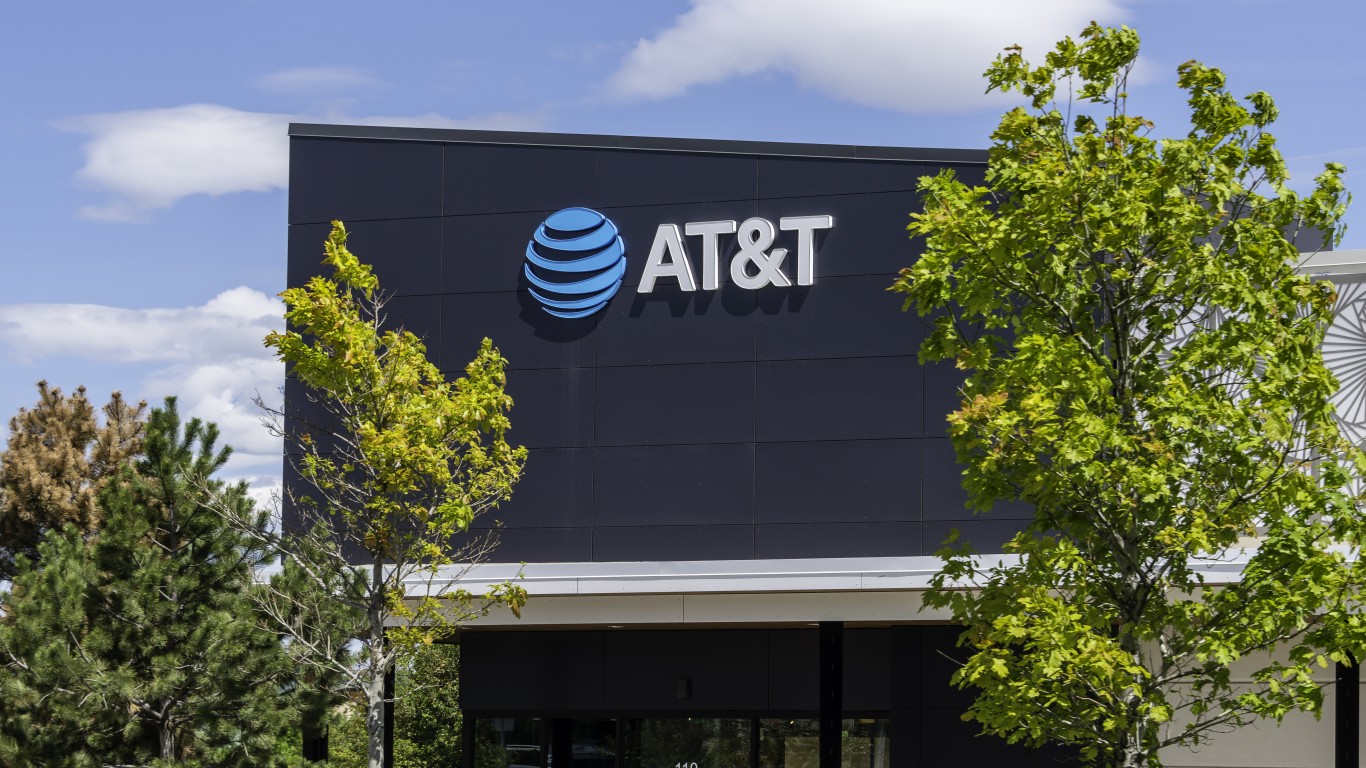Investing
Before the Bell: AT&T, Tesla Hammered After Earnings, ContextLogic Soars on Promised Buyback

Published:

Premarket action on Friday has the three major U.S. indexes trading lower. The Dow Jones industrials were down 0.12%, the S&P 500 down 0.21% and the Nasdaq 0.4% lower.
All 11 market sectors closed lower Thursday. Consumer cyclicals (−1.48%) and real estate (−1.19%) posted the day’s biggest losses. Utilities (−0.05%) and consumer staples (−0.06%) put up the smallest losses. The Dow closed down 0.33%, the S&P 500 down 0.6% and the Nasdaq down 0.6% on Thursday.
Two-year Treasuries dropped by 10 basis points to end Thursday at 4.14%, and 10-year notes fell by six basis points to close at 3.54%. In Friday’s premarket, two-year notes traded at around 4.11%, and 10-year notes at about 3.53%.
Thursday’s trading volume was about equal to the five-day average. New York Stock Exchange losers outpaced winners by 1,857 to 1,402, while Nasdaq decliners led advancers by more than 9 to 5.
Before U.S. markets open on Friday, these seven companies are scheduled to report quarterly results. No notable earnings reports are scheduled for release after markets close Friday.
In Thursday’s weekly report on new claims for unemployment benefits, the Bureau of Labor Statistics counted 245,000 new claims, more than the estimate of 242,000 and more than the 240,000 of the prior week. Continuing claims rose from 1.804 million to 1.865 million. The report indicates that it is getting harder to find a job.
Existing home sales for March fell by 2.4% to a seasonally adjusted annual rate of 4.44 million, slightly below the consensus estimate of 4.5 million and the prior month’s revised rate of 4.55 million. The housing market remains tight, and higher mortgage rates are cooling homeowners’ desire to move.
Thursday’s best performer among S&P 500 companies was tool maker Snap-on Inc. (NYSE: SNA), adding 7.97% to its share price after reporting quarterly earnings and revenue that topped expectations. The 100+-year-old company has a market cap of $13.76 billion and pays a dividend yield of 2.7%. Shares added 16.4% to their value over the past 12 months, and the total return to shareholders was 17.44%.
AT&T Inc. (NYSE: T) stock dropped 10.41% Thursday after it released quarterly results. The decline was the largest single-day drop in more than 22 years. Postpaid subscriber growth fell from 691,000 in the year-ago quarter to 422,800 in the first quarter of this year.
Thursday’s second-worst performer was Tesla Inc. (NASDAQ: TSLA). Shares lost 9.75% after quarterly results late Wednesday met earnings expectations but were a bit short on revenue. A sharp drop in automotive gross margin, from 26.8% in the first quarter of last year to 18.3%, drove the sell-off. As if to counter investors’ reaction, Tesla raised prices on its Model S and Model X vehicles by $2,500 Thursday night. These two models do not qualify for the federal tax credit available to EVs because their prices exceed the $80,000 sticker price maximum.
The increase will not help boost Tesla’s margins by much. The two vehicles account for just 4% of global sales volume. According to Future Fund managing director Gary Black, the price increase boosts Tesla’s profit by $170 million annually while the price cuts for Model 3 and Model Y decreased the company’s profit by $1 billion.
$TSLA raised prices on Models S/X last night by $2,500. While a step in the right direction, S/X make up just 4% of TSLA global volume. Last night’s hike raises TSLA profit by $170M annualized (+$.04/sh EPS). This compares to Tues night’s price cuts on M-3/Y that cost TSLA $1B. pic.twitter.com/YTNNngkgtH
— Gary Black (@garyblack00) April 21, 2023
Less than two weeks ago, mobile e-commerce retailer ContextLogic Inc. (NASDAQ: WISH) completed a 1-for-30 reverse stock split that lifted its share price from $0.3269 per share to $9.80. The stock closed at $7.18 on Thursday, down 1.37% for the day.
After markets closed, however, the company announced a $50 million share repurchase plan, and shares traded up more than 20% in Friday’s premarket. Vivian Liu, the company’s chief operating officer and chief financial officer, touted ContextLogic’s balance sheet and management’s “confidence in the future of our business and our commitment to creating long-term, sustainable value for our shareholders.” The buyback program will be in effect until the end of this year and “may be suspended, terminated, or modified at any time for any reason, and it does not obligate the Company to purchase any particular number of shares.”
The thought of burdening your family with a financial disaster is most Americans’ nightmare. However, recent studies show that over 100 million Americans still don’t have proper life insurance in the event they pass away.
Life insurance can bring peace of mind – ensuring your loved ones are safeguarded against unforeseen expenses and debts. With premiums often lower than expected and a variety of plans tailored to different life stages and health conditions, securing a policy is more accessible than ever.
A quick, no-obligation quote can provide valuable insight into what’s available and what might best suit your family’s needs. Life insurance is a simple step you can take today to help secure peace of mind for your loved ones tomorrow.
Click here to learn how to get a quote in just a few minutes.
Thank you for reading! Have some feedback for us?
Contact the 24/7 Wall St. editorial team.